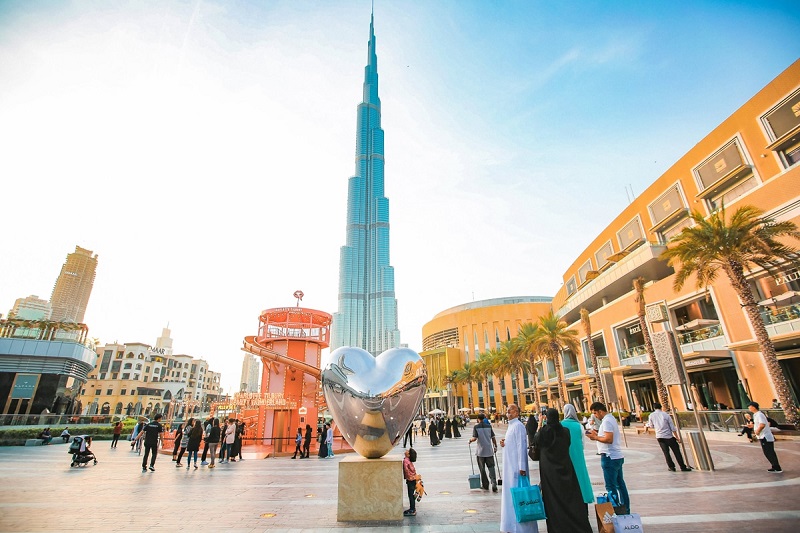Travel Guide Precautions in Gulf Countries
Traveling to the Gulf countries can be an exhilarating experience, offering a unique blend of modern luxury and rich cultural heritage. From the towering skyscrapers of Dubai to the historical sites of Muscat, the Gulf region is a treasure trove waiting to be explored. However, before embarking on your journey, it’s crucial to be aware of certain precautions to ensure a safe and enjoyable trip. This travel guide provides essential tips for navigating the Gulf countries with ease and confidence.
Understanding the Culture
The Gulf countries, including the UAE, Saudi Arabia, Qatar, Oman, Bahrain, and Kuwait, have distinct cultural norms deeply rooted in Islamic traditions. Respecting these cultural practices is paramount for a smooth travel experience.
Dress Code
Modesty in dress is highly valued in the Gulf countries. Both men and women should wear clothing that covers the shoulders and knees. In more conservative areas, women might be required to wear an abaya (a loose black dress) and a headscarf. Swimwear is generally acceptable at hotel pools and private beaches, but it’s advisable to cover up when leaving these areas.
Behavior in Public
Public displays of affection, such as hugging or kissing, are frowned upon and can even lead to legal trouble. It’s also important to be mindful of your actions during the holy month of Ramadan. Eating, drinking, or smoking in public during daylight hours is prohibited.
Health and Safety
Ensuring your health and safety while traveling in the Gulf countries involves a few simple yet effective measures.
Vaccinations
Check with your doctor for recommended vaccinations before traveling. Common vaccinations might include hepatitis A and B, typhoid, and routine vaccinations such as MMR and tetanus.
Drinking Water
Tap water in most Gulf countries is generally safe to drink, but it’s advisable to opt for bottled water, especially if you have a sensitive stomach. Always ensure the seal on the bottle is intact before consuming.
Emergency Numbers
Familiarize yourself with local emergency numbers. In the UAE, for example, the emergency number for police is 999, while in Saudi Arabia, it’s 911.
Legal Considerations
The legal system in the Gulf countries can be quite different from what you might be accustomed to. Understanding and respecting these laws is crucial.
Alcohol Consumption
Alcohol is only permitted in designated areas such as licensed hotels, bars, and clubs. Public intoxication and drinking outside these areas are illegal and can result in severe penalties.
Photography
Avoid taking photographs of government buildings, military sites, and locals without permission. It’s considered a serious offense in many Gulf countries and can lead to legal issues.
Transportation Tips
Navigating through the Gulf countries can be straightforward if you follow these transportation tips.
Car Rentals
Renting a car is a convenient way to explore at your own pace. Ensure you have an international driving permit and familiarize yourself with local driving laws. Note that traffic fines for violations can be hefty.
Public Transport
Public transport options, such as buses and metros, are available in major cities like Dubai and Doha. These services are reliable, clean, and safe.
Accommodation
Choosing the right accommodation can enhance your travel experience.
Hotels
The Gulf countries are known for their luxurious hotels, ranging from five-star resorts to budget-friendly options. Booking in advance is recommended, especially during peak travel seasons.
Local Etiquette
When staying in local accommodations, be respectful of the customs and rules. Some hotels might have specific dress codes in common areas.
Money Matters
Handling finances in the Gulf countries requires some foresight.
Currency
The currency varies across the Gulf countries. The UAE uses the Dirham (AED), Saudi Arabia uses the Riyal (SAR), and Qatar uses the Riyal (QAR), among others. Currency exchange services are widely available at airports, hotels, and malls.
Credit Cards and ATMs
Credit cards are widely accepted in most establishments. However, it’s a good idea to carry some cash for small purchases and in case you encounter places that do not accept cards. ATMs are easily accessible in urban areas.
Communication
Staying connected is essential for a seamless travel experience.
Mobile Phones
Purchasing a local SIM card is advisable for cost-effective communication. Major service providers offer a range of plans suitable for tourists.
Internet Access
Free Wi-Fi is available in most hotels, cafes, and public places. However, be cautious while using public Wi-Fi networks and avoid accessing sensitive information.
Weather Considerations
The Gulf region experiences extreme weather conditions, particularly in the summer months.
Summer Heat
Temperatures can soar above 40°C (104°F) during the summer. It’s crucial to stay hydrated, wear sunscreen, and avoid outdoor activities during peak heat hours.
Best Time to Visit
The cooler months from November to March are ideal for visiting the Gulf countries. The weather is pleasant, making it perfect for sightseeing and outdoor activities.
Food and Dining
Exploring the local cuisine is a highlight of traveling to the Gulf countries.
Halal Food
All food served in the Gulf countries is halal, prepared according to Islamic dietary laws. Pork products and alcohol are not served in most restaurants.
Dining Etiquette
When dining, it’s polite to use your right hand, as the left hand is considered unclean. Tipping is not mandatory but appreciated for good service.
Shopping Tips
Shopping in the Gulf countries is a delightful experience with numerous options.
Malls and Souks
Modern shopping malls and traditional souks (markets) offer a wide range of products, from luxury brands to local handicrafts. Bargaining is common in souks but not in malls.
Duty-Free Shopping
Take advantage of duty-free shopping at airports for great deals on a variety of products.
After Travel: Moving Services
If you find yourself falling in love with the Gulf region and considering a longer stay or even relocating, you’ll need reliable moving services. Whether you’re moving within the same city or across countries in the Gulf, it’s essential to choose a trustworthy moving company. For the best moving experience, check out best movers in UAE. They offer comprehensive services to make your transition smooth and hassle-free.
Conclusion
Traveling to the Gulf countries offers a unique experience filled with luxurious modernity and deep-rooted traditions. By understanding and respecting the local culture, preparing for health and safety, navigating transportation wisely, and managing your finances effectively, you can ensure a memorable and enjoyable journey. Whether you’re exploring the bustling streets of Dubai, the historical sites of Oman, or the serene beaches of Bahrain, these precautions will help you make the most of your trip to the Gulf region.

